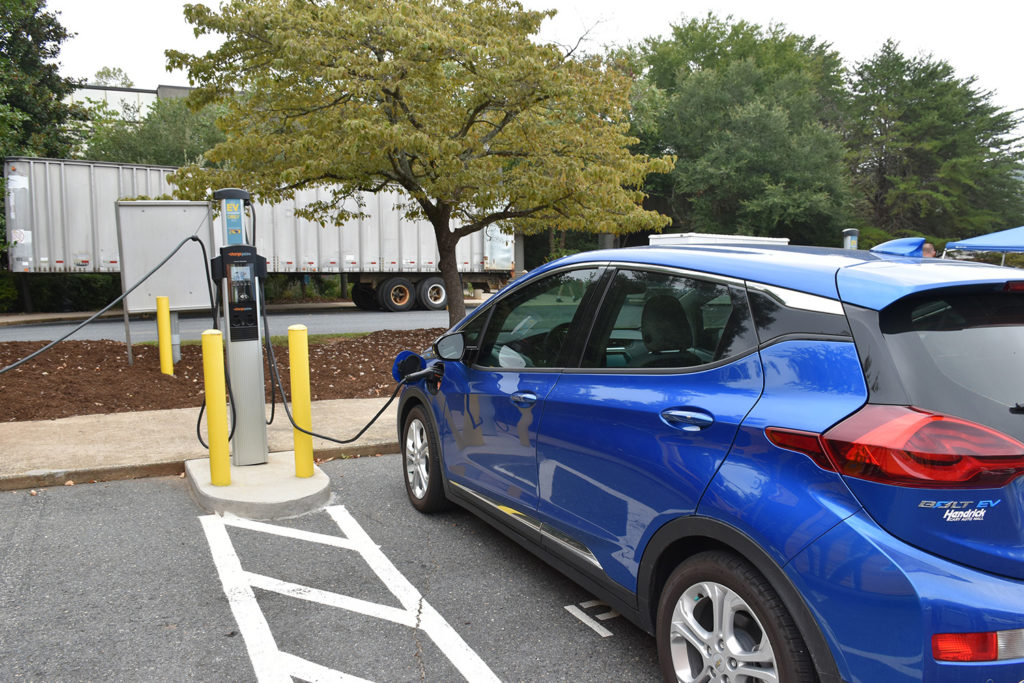
North Carolina’s electric cooperatives are investing $1 million to expand electric vehicle charging stations throughout the state—a move that will create one of the biggest co-op-owned networks in the country.
The cooperatives’ investment is being provided through North Carolina Electric Membership Corp., the state’s generation and transmission cooperative. The funding will be used to install 21 charging stations by the end of this year, said Diane Huis, senior vice president of innovation and business development for North Carolina’s Electric Cooperatives. The co-ops already have an existing network of public charging stations at 30 locations throughout the state, including popular tourist destinations at the beach and in the mountains.
“Our co-ops are willing to be out front, whether it’s on EVs or other innovative efforts like microgrids,” Huis said. “They also have a good understanding of beneficial electrification, so they know that if the EV charging is done in a smart fashion it can really help improve utilization of the grid. And they see this as an opportunity to grow load in a way that is beneficial not only for the co-ops but also for their consumer-members.”
The 21 new charging stations will be made up of 10 DC Fast Chargers and 11 Level 2 chargers. The fast chargers can bring a depleted EV battery to 80% capacity in about 30 minutes. The Level 2 chargers take several hours to do the same, which is why they are located near places where drivers tend to stay awhile—such as restaurants and state parks, Huis said.
ChargePoint, an EV infrastructure company based in Campbell, California, will supply the equipment and manage and install the chargers, which will be owned by the co-ops. ChargePoint’s network will provide the co-ops with data about how many people are coming to the stations and how long they’re staying, Huis said.
The first DC Fast Charger will be installed in the next few weeks near Jordan Lake State Recreation Area, a popular destination for day trips that is served by Sanford-based Central Electric Membership Corp. The next fast charger will be installed in the town of Avon on Hatteras Island in the Outer Banks. This charger will complement two Level Two chargers previously installed on Hatteras Island by Cape Hatteras Electric Cooperative, Huis said.
By expanding the state’s EV charging network, Huis said, North Carolina’s electric co-ops hope to bring more EVs and their benefits—including improved environmental health, economic development and quality of life—to rural communities.
“We see this as a way to encourage EV adoption while strengthening the areas we serve,” she said.
Erin Kelly is a staff writer at NRECA.